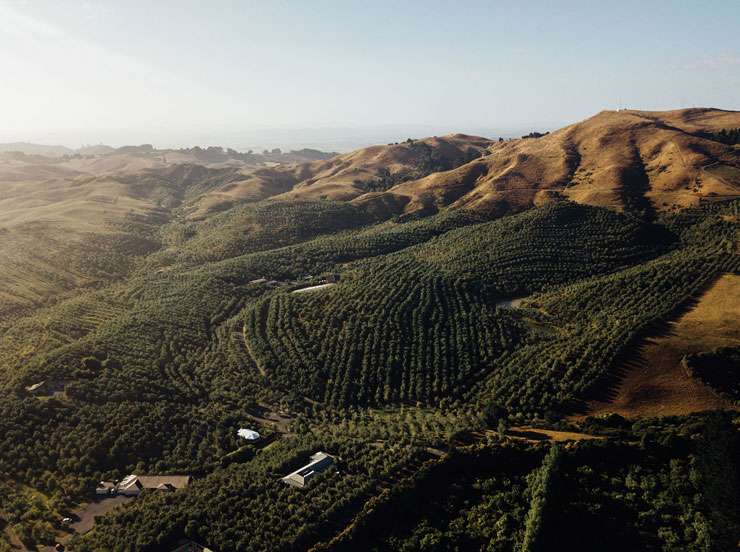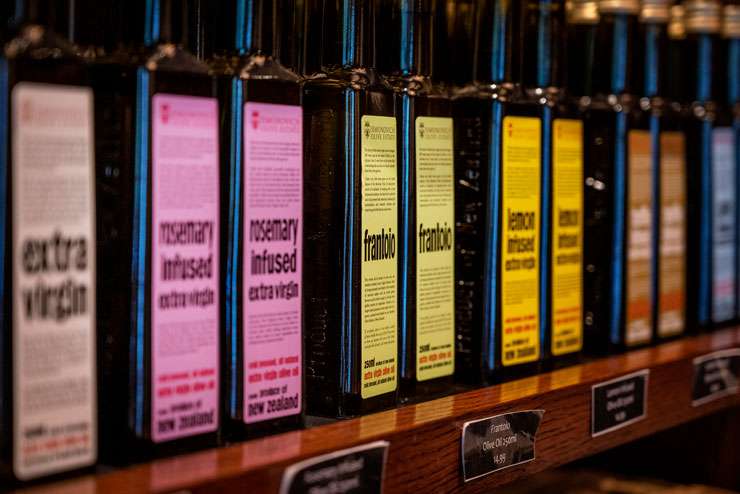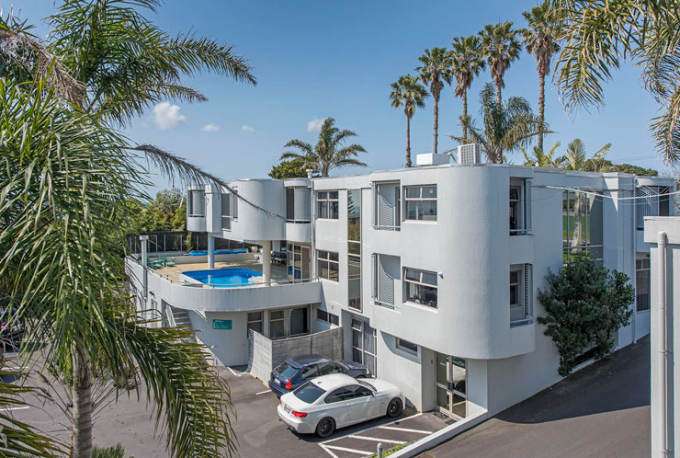One of New Zealand’s top restaurants, Bracu, has been snapped up for many millions of dollars, OneRoof can reveal.
The sale of the internationally renowned restaurant in the Bombay Hills, 40km south of Auckland, was finalised this month, and comes against a backdrop of in the wider hospitality and tourism market as the country deals with the economic fall-out of Covid-19.
Bayleys national director of business sales Jayson Hayde brokered the deal for the Simunovich Olive Estate – of which Bracu is part – saying it was a “landmark” purchase by a Kiwi buyer who wishes to remain private.
READ MORE: The ultra-rich buyers who all want a piece of New Zealand
Start your property search
Hayde wouldn’t reveal the sale price, but said global and local interest was strong from the minute the property went on the market in March, including from hospitality organisations and a couple of celebrity chefs, one of them local, the other an international name.
Hayde said the level four lockdown made it difficult to show people around the property but the phone still rang hot.
Hayde described the 104ha estate as a real trophy property. It was bought by the Simunovich family in 1997. “The Simunovich story began in Brac in Croatia in the Adriatic. That’s the home of the founder Ivan and it was there the Simunovich family first began to cultivate olive trees,” he said.
“The estate is made up of a number of different operations; the olive oil, the skin care business, the restaurant and the wedding and events business. We had inquiry from all over the globe but it did sell to an entity here in New Zealand.
“I think it’s absolutely a landmark sale for that area and certainly one of the larger enterprise sales we would have had this year.”

The 104ha Simunovich Olive Estate went on the market in March. Buyers from around the world showed interest. Photo / Supplied
The big sale comes amid a climate of uncertainty for other businesses, however, with OneRoof data showing a spike in the number of business that are still on the market for sale since the start of the Covid-19 crisis.
OneRoof looked at the number of new listings advertising a business for sale between April 1 and July 31 this year. Eighty-three percent of the listings were still active as of the August 10. Of the number of new business listings over the same period last year, only 41 percent were still active.
Hayde said there were businesses in trouble as a result of Covid-19 and though painful for the owners, these situations were an opportunity for others.
Buyer enquiry was strong, and among those looking were expats and people who had lost their jobs.
“There’s no doubt there’s distress but we’ve got a lot of expats coming back into New Zealand who just by default are unemployable here in New Zealand as some of those jobs don’t exist,” he said.
“They’ve come back, they’re cashed up and they’re looking to secure a future so we’re working with a lot of those types of buyers in leadership transition roles where they’re buying pieces of equity into an established business where there is a structured transition over time.

The estate, bought by the Simunovich family in 1997, is renowned for its olive oil. Photo / Supplied
“We’re also seeing the once in a lifetime opportunity for the recently-made redundant. We did one the other day in Herne Bay where we were able to put someone into a beautiful little cafe.
“The current owner was distressed, needed to relieve themselves of the obligations and guarantees of the lease and we were able to slot this particular buyer into that business and it was a great success for all parties.”
Despite the hospitality industry being hit hard by Covid-19 restrictions, Hayde said there was buyer interest in the sector, but not for large hospitality businesses.
“If it can be a business that can be run by an owner-operator, where there’s not a large staff component required, where potentially they’re going to [make] $100,000-$120,000 a year in discretionary cash earnings, then that’s an attractive proposition,” he said.

This motor lodge in Auckland’s North Shore sold for $11.5 million. Photo / Supplied
“There are once in a lifetime opportunities being presented in the hospitality sector right now. We’re doing a lot of work with liquidators and in some cases we’re seeing opportunities where savvy operators who are well established with strong balance sheets can walk into million dollar fit outs just by agreeing to terms with the landlord to take over the lease because the landlord requires the income.”
While wage subsidies and small business loans have helped business owners, Hayde thinks there will be an increase in the number of businesses going bust. “As some of the stimulus that’s been put in by the Government ends, we will see a shift to liquidation. I just think it’s inevitable in some cases.”
But even parts of the tourism business market were showing signs of life, he said, pointing to a large accommodation property his team is taking to the market in Te Puke soon, and the recent sale of a motor lodge in Takapuna for over $10 million.
These sorts of sales reflect people are thinking beyond Covid-19. “I think [buyers] are positioning themselves for the mid-to-long term, not the short term. I think what we’re seeing is a step change in the way people are looking at their businesses, where they’re able to say ‘Let’s look at things in three to five years’ time, not 18 months’ time.’”
Aaron Toresen, chief executive of business brokerage firm Link, said buyer inquiry was strong and plenty of sales were being made. “We’ve had a number of pilots that have had reasonable severance packages and then bought a business through us,” he said.
“We’re getting people who have been made redundant in their 60s who just feel it’s going to be too hard to re-enter the workforce.”
Link’s biggest problem, Toresen said, was hesitation among business owners looking to sell. “It’s actually a great time to sell. It’s not uncommon to get multiple offers on a business at the same time which was quite unusual six months ago, 12 months ago. It’s a really interesting dynamic,” he said.








































































